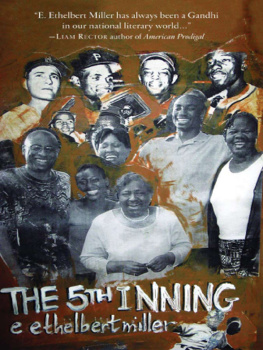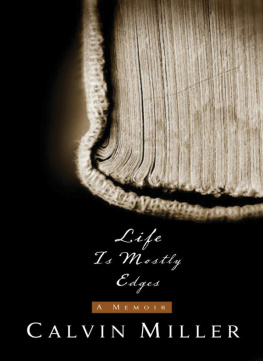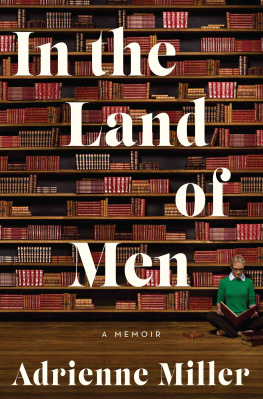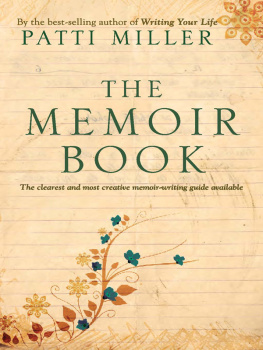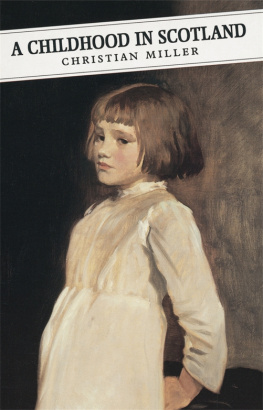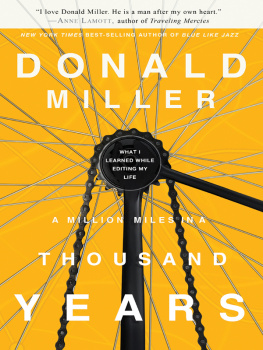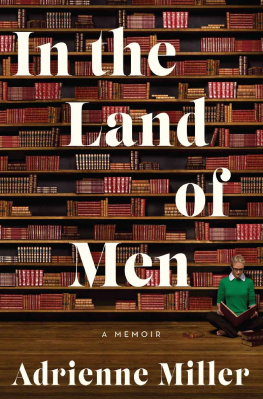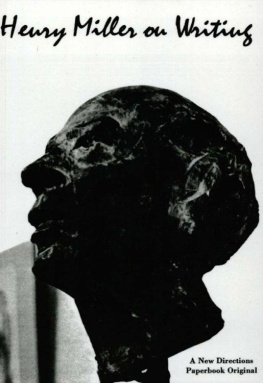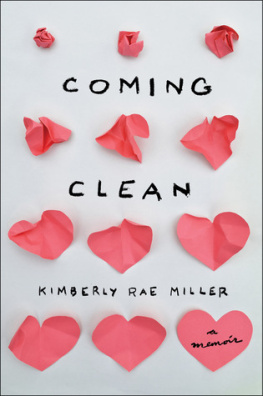The 5th Inning
Also by E. Ethelbert Miller
Fathering Words: The Making of An
African American Writer
How We Sleep On The Nights We Dont Make Love
Where are the Love Poems for Dictators?
Whispers, Secrets and Promises
The 5th Inning
E. Ethelbert Miller

The 5th Inning
By E. Ethelbert Miller
ISBN: 978-1-60486-062-7
Library Of Congress Control Number: 2008909320
Copyright 2009 E. Ethelbert Miller
This edition copyright 2009 Busboys and Poets and PM Press
All Rights Reserved
PM Press
PO Box 23912
Oakland, CA 94623
www.pmpress.org
Busboys and Poets
2021 14th St NW
Washington, DC 20009
www.busboysandpoets.com
Layout and design: Josh MacPhee/Justseeds.org
Printed in the USA on recycled paper.
Table of contents
I am deeply grateful to Andy Shallal and Busboys and Poets for making this book possible. Special thanks to the Virginia Center for the Creative Arts (VCCA) for providing me with a residency in May 2008. Without the time to write this book it would still be sitting in the dugout.
Thanks to Kirsten Porter, who served as editor and third base coach.
Much love to everyone who dreams of one day playing in the major leagues.
Let the poets sing the National Anthem.
May all our lives go into extra innings.
The months and the years, a running river.
Then theres the day you wake up old.
Han Shan
(8th Century)
I DIDNT WANT TO BECOME another Ellison. I had talked about writing a second memoir for several years. If I didnt begin immediately there would be no beginning. Whereas Ellison could never produce another Invisible Man, I wanted to surpass what I had done in Fathering Words: The Making of An African AmericanWriter. The book was written as a tribute to the lives of Egberto and Richard Miller, my father and brother. Two black men who should have lived much longer and accomplished much more. Fathering Words was also about how I became a writer. For much of my life I have taken the poets journey, the path which emanates from the heart. This rugged terrain has known tears, loneliness, and depression. Why continue to wear a mask? My first memoir featured two voices instead of one. I wrote in my sister Maries voice and my own, creating a duet within the text. How could I tell my family stories when there were so many secrets kept from me? The curse of being the baby of the family. My sister, five years older, had a head full of hair and stories, too.
I wrote a good memoir published in 2000; the finished project surprised me like Jackie Robinson stealing home in front of Yogi. How could I find so many words to describe my path? I said silent prayers hoping the book would have a long life. Maybe a few were answered.
But now Im pushing myself to write this second memoir. This book is a riff on middle-age, marriage, fatherhood, and failure. In baseball the fifth inning can represent a complete game. The structure of this book consists of balls and strikes. As a writer I might now and then throw the reader a curve. Balls and strikes can also stand for BS. How much is thrown at a person by the time they reach 50? When BS becomes just B, it might represent not balls but the blues. Four balls is a walk. The blues seen as departure and loss? The B also stands for blackness, perhaps the essence of the blues.
When August Wilson died at 60, I thought of the long conversation I once had with the novelist Charles Johnson a few months before Wilson went public with his illness. Charles had called me at Bennington College, where I was teaching creative writing. He told me Wilson was going to die. We were both angry and sad. Our long conversation became a lifeline for us both. We thought of how quickly life is suddenly over so much work left undone. We are born with blank pages. Notebooks without lines. August Wilson seemed blessed because he was able to complete his cycle of plays prior to his death. But what about the majority of us? Our lives are often incomplete. We struggle to love like Wilsons character Citizen in Gem of the Ocean. By the time we turn 50 our bodies begin to fail. Mirrors might catch a glimpse of an aging body on the way to work and mumble some words in its direction. Maybe the mirror says loser.
How do we cope with failure in life? How do we live when everyday we open our eyes to death? This memoir is about how I coped with failure and disappointment in career, marriage, and life. We fail as lovers, parents, and friends.
Its almost the end of the fifth inning, and someone is getting up either in the dugout or bullpen. Its almost over, I tell myself. Why else write a book? Some of us fail as writers, too.
Baseball is still the American Pastime.
There is an inning in which husbands stop talking to their wives. It might be an argument that changes the score, taking love with it. How did I become one of those silent men sitting across the table from a woman with graying hair and a body now entering fall? When did my vows become autumn?
Love is difficult these days. Isnt it? Im writing during a time of war. Yes, I thought my mission was accomplished after writing one memoir, but here I am acknowledging the past again. Yes, this might be another attempt at forgetting. Why try to remember? Why construct a memorial with words?
Im often engulfed in loneliness. The nakedness of standing on the pitching mound alone. Ive been crying too much. A sign of depression or sensitivity? One day I just couldnt take it anymore. My daughter was in the bathroom showering; my son was a cell phone call away. It was a film noir moment. Shadows, cigarette smoke, and a crazy dame. How do fathers handle disagreements with mothers? I wanted to walk out of the house with my blues. I couldnt keep fighting anymore. What terrorists secrets had been kept from me? How did my life become Iraq? Why do I keep taking my shoes off when I enter the house? Can a home begin to resemble an airport before a ticket is checked? In my life Ive witnessed too many good friends killing themselves as if they were workshopping a poem, novel, or memoir. What created those long sentences that ran out of air trying to explain the heart?
When a person becomes 50 or approaches the years that follow, his story is almost over. He can turn around and see the narrative he created. It might be about children, wealth, or personal achievements. The narrative is the story you find yourself in but cant determine if youre the author. You tell a woman you love her but its false intelligence. So much of this lately so you apologize during this age of apology. How difficult can it be when so many others are apologizing for murder, war, adultery, and slavery? What is the difference between a confession and an apology?
What does a person confess after an error? A woman tells a man that marrying him was the worst mistake she ever made in her life. Is she confessing? Should he apologize?
So, Im writing this memoir while sitting in a studio at the Virginia Center for the Creative Arts (VCCA). Ive written five, six, maybe seven pages on my first day. I feel good. Discipline. Control. The narrative finding the corner of the plate. I have a postcard of James Baldwin on my desk. He is leaning against the pen and pencil holder. Its the photograph Jill Kremetz took in 1973. Baldwin is wearing a shirt with a large collar. He has on a tie. He is 49. He isnt looking angry or mourning Malcolm or Martin. In this picture Baldwin is Miles. The coolness reflected in his stare into the camera. Into life. I remember in the early 1980s, being on the same program with Baldwin. We were at the Howard University Law School. I read a few poems first as if I was an early warm-up act for Aretha. Baldwin followed, lifting my words into his own and turning them into not just poetry but jewels. He spoke about his life as if he was Martin in Memphis. That point of not simply looking back but instead coming to that moment of measurement and truth. That moment when you know the price of the ticket but you have no cash. You turn around looking for someone to help you. You have an apology in one hand and a confession in the other.
Next page
